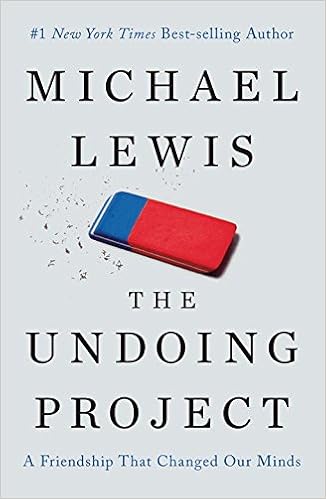It has been a long while since I wrote anything for Citizen Statistician, so I thought I would scribe a post about three books that I will be reading over break.


The first book is Cathy O’Neil’s book, Weapons of Math Destruction: How Big Data Increases Inequality and Threatens Democracy [link to Amazon]. I am currently in the midst of Chapter 3. I heard about this book on an episode of 538’s podcast, What’s the Point?, on which O’Neil was featured [Who’s Accountable When An Algorithm Makes A Bad Decision?]. The premise of this book has been something that has been on the mind of many people thinking about data science and algorithms in recent years (and probably not-so-recent years); that many algorithms, and thus the predictions stemming from them, are not transparent. This leads to many ethical and, potentially, legal issues when algorithms are then used to make decisions about recidivism, loan applications, college admissions, etc. I think this book could be the basis for a very interesting seminar. Let me know if anyone is working on something like this.
The second book I will be reading is Michael Lewis' The Undoing Project: A Friendship That Changed Our Minds [link to Amazon]. This book is bout the friendship, collaboration, and, ultimately, disentanglement between the renowned psychologists Daniel Kahnemann and Amos Tversky. I learned about Kahnemann and Tversky’s work early in my graduate career when Joan Garfield taught a doctoral research seminar on the seminal psychological work related to probabilistic thinking and statistics education. We read not only Kahnemann and Tversky, but also Gird Gigerenzer, Ruma Falk, Maya Bar Hillel, Richard Nisbett, Efraim Fischbein, and others. Interestingly, What’s the Point? recently did two episodes on Lewis' book as well; Michael Lewis’s New Book Examines How We Think About Thinking and Nate Silver Interviews Michael Lewis About His New Book, ‘The Undoing Project’.
The third book is Who’s #1?: The Science of Rating and Ranking [link to Amazon] by Amy Langville and Carl Meyer. I had read their earlier book, Google’s PageRank and Beyond: The Science of Search Engine Rankings, several years ago, and was quite impressed with the readability of the complex matrix algebra they presented. In _Who’s #1, _the authors present the mathematics underlying several ratings systems including the Massey system, Elo, Colley, Keener, etc. I am actually treating this book like a self-taught class, working out several of their examples using R, and really trying to understand the ideas. My interest here is related to the work that I am doing with Brandon LeBeau (University of Iowa) and a current graduate student, Kyle Nickodem on estimating the coaching ability for NCAA football coaches using a hierarchical IRT model [see slides from a talk here].

